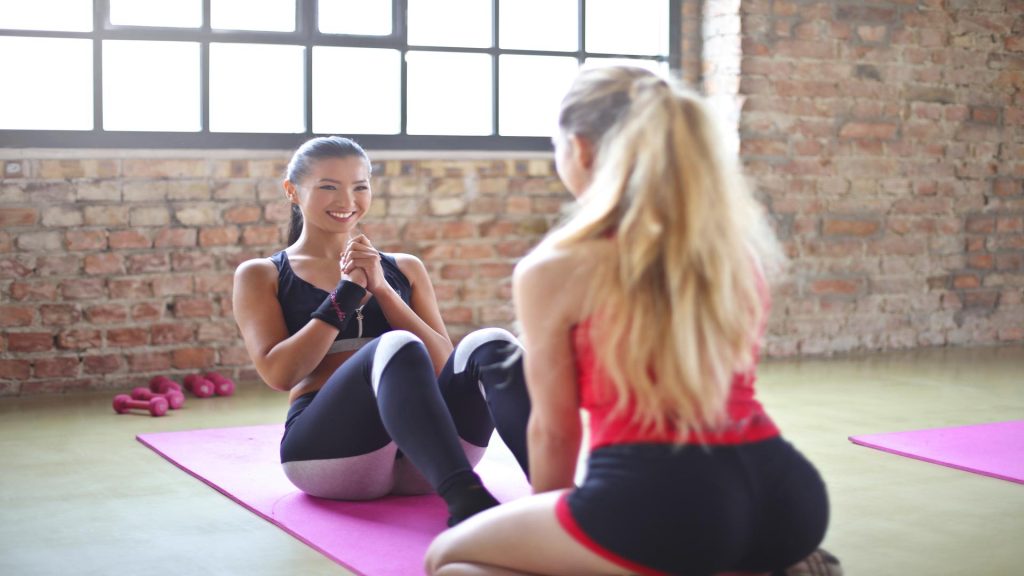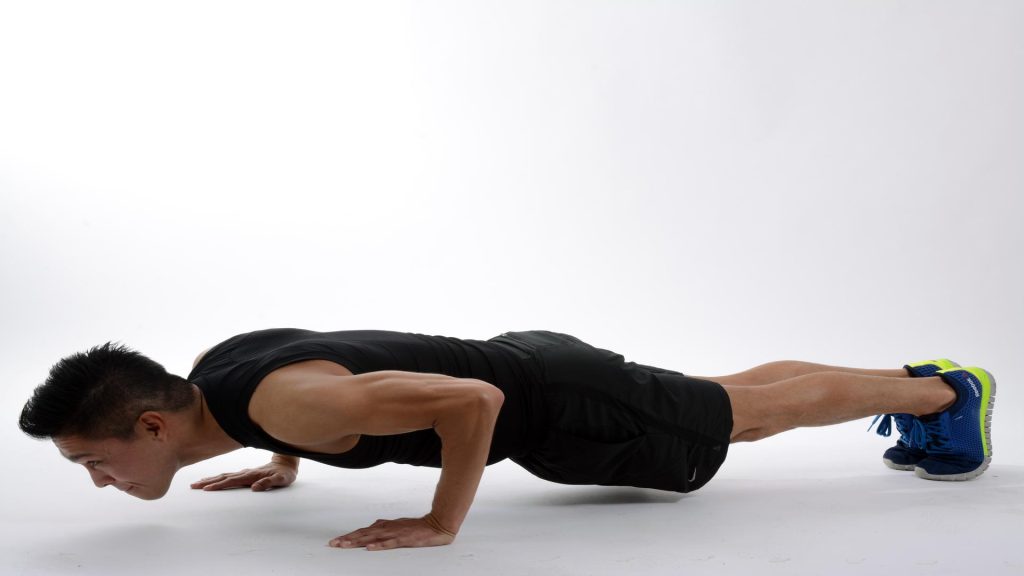
Outline:
- Introduction to Fitness for Beginners
- Importance of fitness
-
Benefits of regular exercise for beginners
-
Setting Goals for Fitness Journey
- Understanding personal fitness goals
-
SMART goal-setting method
-
Starting with Cardiovascular exercises
- Importance of cardiovascular fitness
- Beginner-friendly cardio activities
-
Creating a cardio routine
-
Incorporating Strength Training
- Benefits of strength training
- Basic strength exercises for beginners
-
Designing a strength training program
-
Flexibility and Stretching
- Importance of flexibility
- Stretching exercises for beginners
-
Incorporating yoga or Pilates
-
Proper Nutrition for Fitness
- Importance of a balanced diet
- Macronutrients and their role in fitness
-
Meal planning for beginners
-
Mindset and Motivation
- Staying motivated on the fitness journey
- Overcoming obstacles and setbacks
-
Mental health and fitness
-
Avoiding Common Mistakes
- Listening to the body and avoiding overexertion
- Gradual progression and avoiding injuries
-
Seeking professional guidance if needed
-
Tracking Progress
- Importance of tracking progress
- Tools and apps for tracking fitness goals
-
Celebrating milestones
-
Finding Support and Accountability
- Benefits of support and accountability
- Joining fitness communities or classes
- Finding a workout buddy or hiring a personal trainer
-
Staying Consistent
- Importance of consistency in fitness
- Creating a workout schedule
- Incorporating fitness into daily routine
-
Overcoming Plateaus
- Understanding fitness plateaus
- Mixing up workouts and trying new activities
- Reevaluating goals and making adjustments
-
Rest and Recovery
- Importance of rest days
- Incorporating active recovery into routine
- Obtaining quality sleep
-
Conclusion
- Recap of key points
- Encouragement for beginners on their fitness journey
Fitness for Beginners
Fitness is a vital aspect of overall health and well-being. Regardless of age or current physical condition, embarking on a fitness journey can bring numerous benefits. Whether you are looking to lose weight, gain strength, increase flexibility, or improve cardiovascular health, starting small and gradually building up your fitness routine is the key to success.
Introduction to Fitness for Beginners
Before diving into the various components of a beginner's fitness plan, it's important to recognize the significance of maintaining good physical health. Regular exercise offers a wide range of benefits for the body and mind. From boosting energy levels and reducing the risk of chronic diseases to enhancing mood and improving cognitive function, physical activity plays a crucial role in leading a healthy and fulfilling life.
Setting Goals for Fitness Journey
At the beginning of your fitness journey, it's essential to set clear and achievable goals. By defining what you want to accomplish, you can stay motivated and track your progress effectively. The SMART goal-setting method is widely recognized as a valuable approach for goal setting. SMART stands for Specific, Measurable, Achievable, Relevant, and Time-bound. Ensuring that your goals align with these criteria increases the likelihood of achieving them.
Starting with Cardiovascular Exercises
Cardiovascular exercises, often referred to as cardio, are activities that elevate the heart rate and increase stamina. These exercises are essential for improving cardiovascular health and burning calories. For beginners, low-impact activities such as walking, swimming, cycling, or using an elliptical machine are great choices. Gradually increasing the duration and intensity of these exercises will help build endurance and promote weight loss.
Incorporating Strength Training
Strength training is a vital component of a well-rounded fitness routine. Not only does it help build and tone muscles, but it also boosts metabolism and increases bone density. Beginners can start with bodyweight exercises like squats, push-ups, and lunges. Gradually incorporating resistance bands or weights can add more challenge and variety to the workouts. Working different muscle groups on different days and allowing for rest days in between sessions are crucial for muscle recovery and growth.
Flexibility and Stretching
Flexibility plays a significant role in overall fitness by improving joint mobility and reducing the risk of injuries. Stretching exercises should be included in every workout routine. Beginners can engage in activities like static stretching, where they hold a stretch for a specific period, or dynamic stretching, which involves movement while stretching. Additionally, practices like yoga or Pilates can enhance flexibility and offer relaxation benefits.
Proper Nutrition for Fitness
A well-balanced diet is crucial for supporting your fitness journey. Proper nutrition provides the necessary energy and nutrients for workouts, aids in muscle recovery, and contributes to overall well-being. It's important to consume a combination of macronutrients, including carbohydrates, proteins, and healthy fats. Planning meals in advance, focusing on whole foods, and staying hydrated are some essential aspects of maintaining a nutritious diet.
Mindset and Motivation
Building a strong mindset and maintaining motivation are vital for staying consistent with your fitness goals. Stay positive and remind yourself of the reasons you embarked on this journey. Set realistic expectations and don't be too hard on yourself if progress feels slow at times. Seeking support from friends, family, or fitness communities can provide encouragement and accountability. Additionally, prioritizing mental health and incorporating stress-reducing activities is crucial for overall well-being.
Avoiding Common Mistakes
When starting a fitness routine, it's important to be mindful of common mistakes that beginners often make. Avoid pushing yourself too hard too soon, as this can lead to injuries or burnout. Build your routine gradually, allowing your body to adapt and progress naturally. Seeking guidance from fitness professionals or trainers can help ensure proper exercise form and reduce the risk of injury.
Tracking Progress
Tracking progress is essential for staying motivated and evaluating the effectiveness of your fitness routine. Use tools like fitness apps or journals to record your workouts, measurements, and achievements. Tracking your progress allows you to celebrate milestones and make necessary adjustments to reach your goals effectively.
Finding Support and Accountability
Embarking on a fitness journey can be challenging, but finding support and accountability can make the experience more enjoyable and successful. Consider joining fitness classes or communities that share similar goals or interests. Having a workout buddy or hiring a personal trainer can offer expertise, motivation, and a sense of accountability.
Staying Consistent
Consistency is key when it comes to fitness. Create a workout schedule that works for your lifestyle and commit to it. Make exercise a non-negotiable part of your routine, just like any other essential task. Remember, even short and regular workouts yield results over time.
Overcoming Plateaus
During your fitness journey, you may encounter plateaus, where progress seems to stall. It's important to stay motivated and overcome these plateaus by mixing up your workouts, trying new activities, or increasing the intensity of your exercises. Reevaluate your goals periodically and make adjustments to keep challenging yourself and continue making progress.
Rest and Recovery
Rest and recovery are integral parts of any fitness routine. Allow your body time to heal and regenerate by incorporating rest days in your schedule. Active recovery activities like light yoga or stretching can help reduce muscle soreness and promote flexibility. Additionally, getting enough quality sleep is crucial for overall well-being and optimal performance.
Conclusion
Embarking on a fitness journey as a beginner can be both exciting and challenging. By understanding the importance of fitness, setting clear goals, and incorporating various components into your routine, you can steadily progress towards a healthier and fitter lifestyle. Remember to stay consistent, listen to your body, and celebrate every step of your achievements. Fitness is a lifelong journey, and with dedication and perseverance, you can reach your desired level of health and well-being.
� Fitness for Beginners
� FITNESS
� FITNESS
� Discover how beginners can kickstart their fitness journey with expert tips and advice. Learn about goal-setting, cardio exercises, strength training, nutrition, and more for a successful fitness experience.
Thank you for reading. For more insights, visit our #healthzone#3.com/blog">BLOG. We appreciate your support!



